
Fame is a "Bubble" That Cannot Be Reached
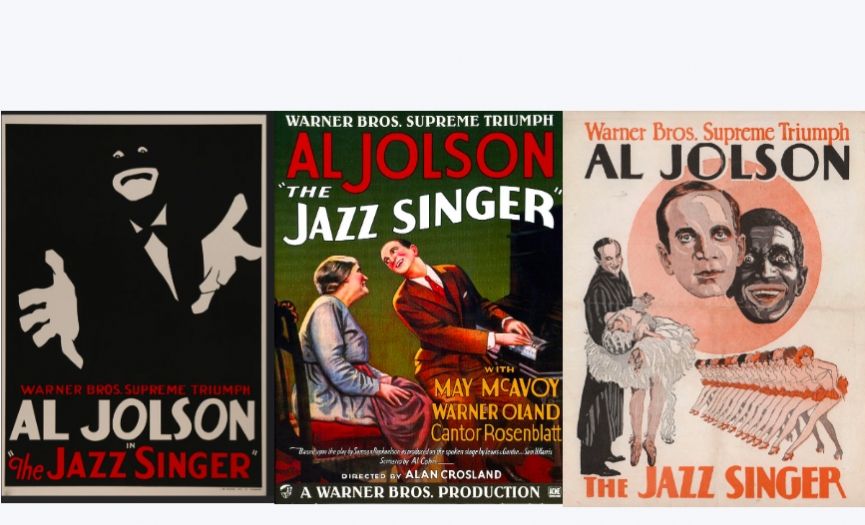
“Wait a minute, wait a minute. You haven't heard anything yet"
The film "The Jazz Singer", mentioned in Eric A. Goldman's book "The American Jewish Story Through Cinema", is recorded by authorities as the world's first sound film. "The Jazz Singer", a 1927 American Musical film, is considered to be the first feature film with sound, which was released in our country in 1930 under the name "Jazz Mugannisi".
It is recorded that the film in which the sentence “Wait a minute, wait a minute. You haven't heard anything yet" is the first spoken dialogue, was shot at Warner Bros. Pictures Studios. The Vitaphone system was used in the sound recording of the film and was produced by Warner Bros. and is said to have been a sound film system used for feature films and approximately 1,000 short subjects made by its sister studio, First National, from 1926 to 1931. The Vitaphone sound system, in which the sound was recorded on phonograph records separately from the film, could only be used for ten minutes of the film. Although it was initially decided that only the songs would be sung instead of spoken dialogue, Al Jolson, who plays the leading role, speaks improvisationally between songs, and Harry Warner does not remove these conversations from the film. The film's premiere date and time in New York City (October 6, 1927, 8:45 p.m.) appears to have been chosen to coincide with the Yom Kippur holiday depicted in the film. It is also recorded that the film was released as a completely silent film, as many cinemas of the period did not have Vitaphone Sound System equipment.
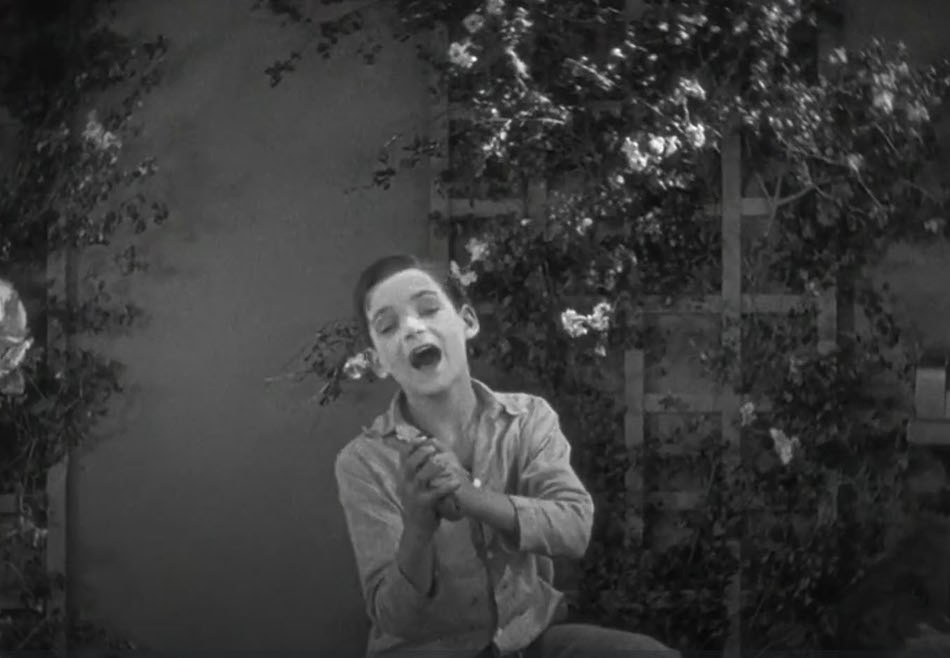
When Jakie was 13, he sang jazz in a secret club from his father.
“God made her a woman, love made her a mother”
The film tells the story of the conflict that arises from the son of a Jewish family who wants to be a jazz singer and his father's opposition to him wanting him to sing religious songs in the synagogue like him. It can also be said to be the story of a man choosing between his family and career. Almost the entire movie is accompanied by background music and is subtitled.
Attention is drawn to the general appearance of the New York Ghetto in the impressive opening scene of the black-and-white film. Kantor Rabinowitz, who sings hymns in the synagogue, is a man who stubbornly adheres to his traditions. The cantor wants his son Jakie to also become a cantor. With the caption, “God made her a woman, love made her a mother,” Sara Rabinowitz shares with her husband the thought that their son may not want to become a cantor. Cantor Rabinowitz's response to his wife is: “The Rabinowitzes have been cantors for five generations. That too will happen.”
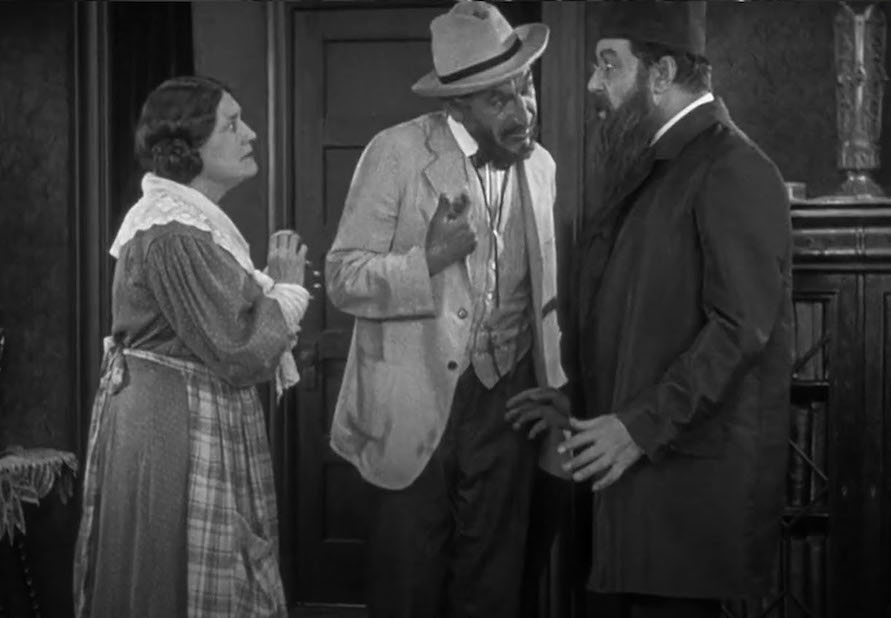
Yudelson: “Cantor Rabinowitz, your boy Jakie is singing jazz in the club.”
“There are tears in your voice”
Mother Sara says, "Yes, he knows all the hymns, but not in his head or heart," and cannot stop his father from trying to discipline Jakie by beating him with a belt, he is so weak and helpless. And inevitably, Jackie runs away from home. We are listening to the hymns sung in the synagogue by the cantor who says, "My son was going to sing hymns with me tonight, but I don't have a son anymore."
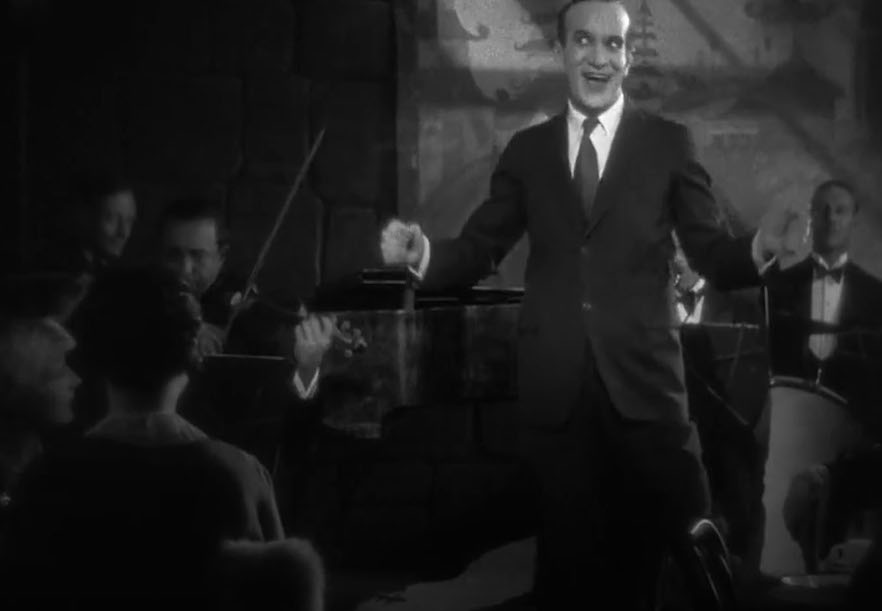
Jack Robin sings jazz songs on stage
Years later, Jakie Rabinowitz changes his name, becoming Jack Robin, and slowly climbs the career ladder. As a jazz singer but the son of a cantor, he still sees fame as an unattainable bubble. At a nightclub where he performs, he encounters Mary Dale, who is just becoming famous. Mary Dale says to him: “There are many jazz singers, but your tears are hidden in your voice.” She says that maybe she could help him.
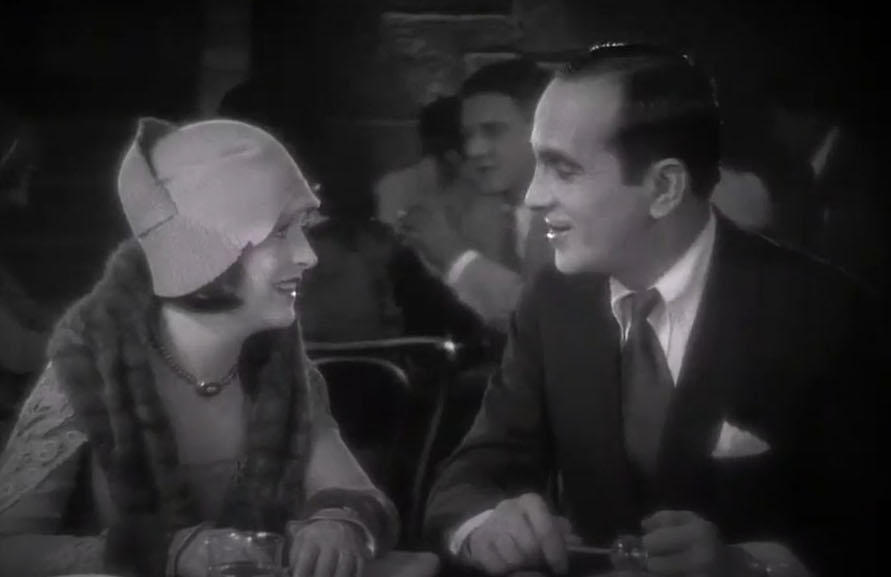
Mary Dale: “Maybe I can help you Jack.”
“For those whose faces look to the past, their lives do not change..."
Jack Robin writes letters to his mother during the years he is away from home. However, his father forbids him to open the letters he sent to his mother. Despite this, Sara Rabinowitz secretly opens and reads her son's letters. Jack Robin also mentions Mary Dale in his last letter. His mother's only concern when she reads the letter is this: "Maybe the girl he is in love with is not Jewish."
“We don't have a son”
Mary Dale receives an offer to play the lead role in a musical in New York and she says goodbye to Jack Robin. Robin goes to a sacred songs concert by a man named Cantor Rosenblad in Chicago. He ponders during the cantor's concert. He remembers the sacred songs his father sang in the synagogue where he was a cantor and decides to visit his father.
By the way, it is impossible not to mention the silent film acting. The acting is exaggerated, and since there is no sound, the mouths are moved more clearly. Unfortunately, the movements are huge, as if they were on a theater stage...
“Five generations of your family are cantor”
Jack Robin is hired in a Broadway revue in New York. On his father's birthday, when he turns sixty, he gathers courage and goes to visit the family home. At the door he encounters Yudleson, who is snitching on him to his father. When he enters the house, he sees the cantor teaching children in the synagogue. He is longing for his mother. We are watching the scene on the poster of the movie. Jack Robin sings to his mother one of the songs he has been practicing on the piano. In this very scene, we hear the voices of the actors. While singing the song, he makes promises to his mother. “If I am successful in this show, I will move you out of this house. Out of the Bronx. There are many families out there with surnames ending in -berg. I'll buy you a black and a pink dress."
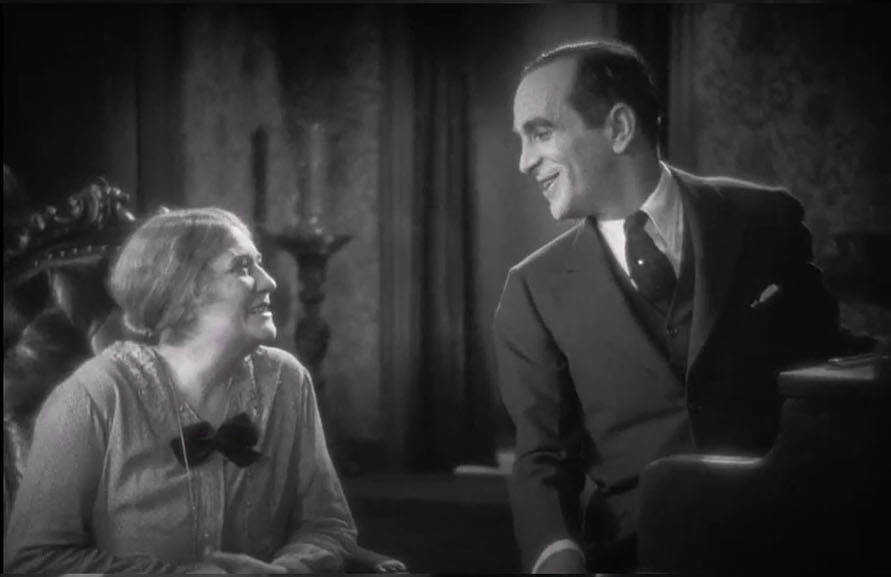
“If I am successful in this show, I will move you out of this house. Out of the Bronx. There are many families out there with surnames ending in -berg. I'll buy you a black and a pink dress."
While he is singing jazz to his mother as if he were on stage, his father comes and stops his performance for only one audience. When he meets his father again after many years, he cannot say anything for a long time. The audience catches a great irony. On the cantor's birthday, his wife, his wife's friend, Yudleson and Jack also buy the cantor a prayer shawl. Every time Sara Rabinowitz sees the prayer shawl, she doesn't give a damn and manages the situation by saying "It's just what he needs." When Jack tells his father he is going to work on a show on Broadway, he responds, “What! Singer in theatre? Five generations of your family are yours." In response to his father, he replies, “You taught me that music is the voice of God. It is honorable to sing in the theater as in the synagogue. My songs mean as much to my listeners as what you say to your congregation."
“Career? My family?"
It seems like the world's sorrow is gathering in the Rabinowitz house because the father, cantor Rabinowitz, gets sick. On the first night of the revue, before the premiere, Yudleson decides to tell Jack that his father is sick. He says they want Jack to say prayers in the synagogue for the day of atonement. It's also the opening of the show for Jack, but he's torn between his jazz singer career and his family and begins to think. Al Jolson, who played the character of Jack, painted his face, neck and hands with black paint before going on stage, meaning that only dark-skinned Americans sang jazz in those years. This must be the meaning of darkening the skin of a white person before introducing him as a jazz singer...
“We have our own religion in show business”
In response to Yudelson, who asked, “Are you going to be the Rabinowitz who hasn't fulfilled his duty for five generations?” Jack replies, "We have our own religion in show business, the show must go on." Jack's mother comes to the theater on the night he is to go on stage and invites him to see his father, saying that his father is dying.
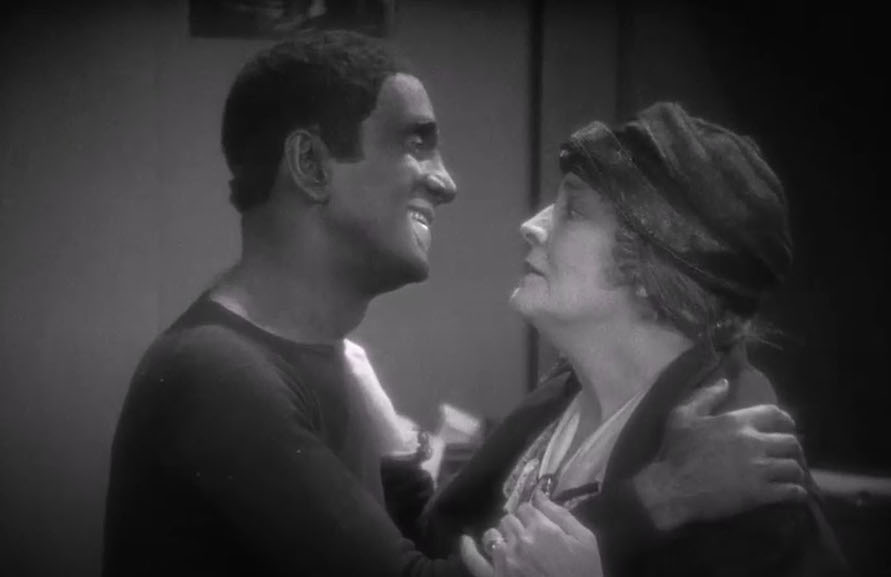
Dark-skinned jazz singer Jack tells his mother about the importance he attaches to his career.
He goes to a dress rehearsal during the day and then goes to see his father in his sick bed. He tells his father that he will get better soon and he says, "Son, I love you." Stating that he has not said the "kol nidre" prayer since his childhood, he cancels the evening's show and recites "kol nidre". His father, who sat up in his sick bed and listened to his son in his last moments, breathes his last in his mother's arms. As Jakie Rabinowitz sings hymns in the synagogue, his father's spirit touches his shoulder, as if approving of what his son is doing or giving him a hand. Mary Dale's words leave their mark on the film. “A jazz singer sings for his god.” The film ends with a jazz song sung by Jakie Rabinowitz for his mother.
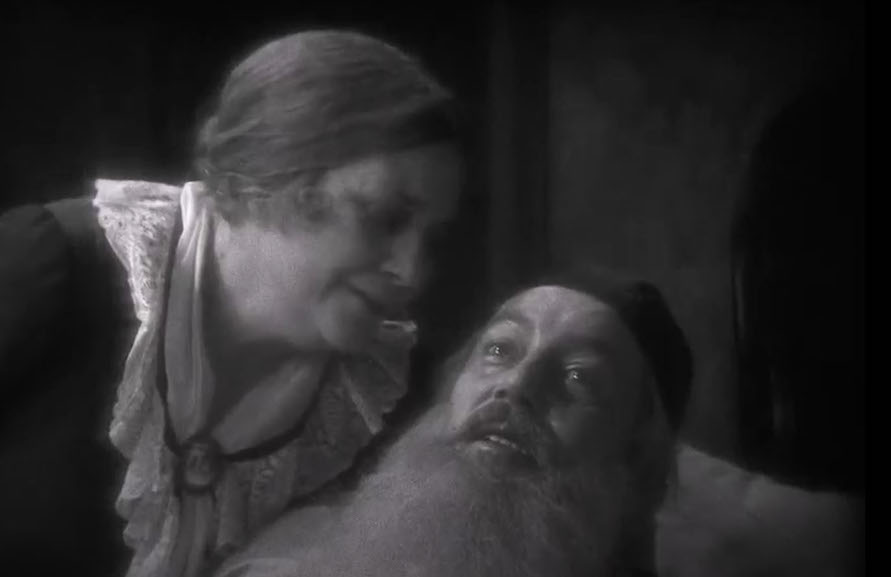
“Madam Mother, we were reunited with our son”
I recommend you watch the movie. If you can spare 89 minutes to observe the acting of the silent film period, as well as being considered the first sound film, you will see the efforts of the son, under the influence of a conservative Jewish family father, to keep up with the times and his inability to break away from his family even as he takes determined steps in his career path. A didactic movie...
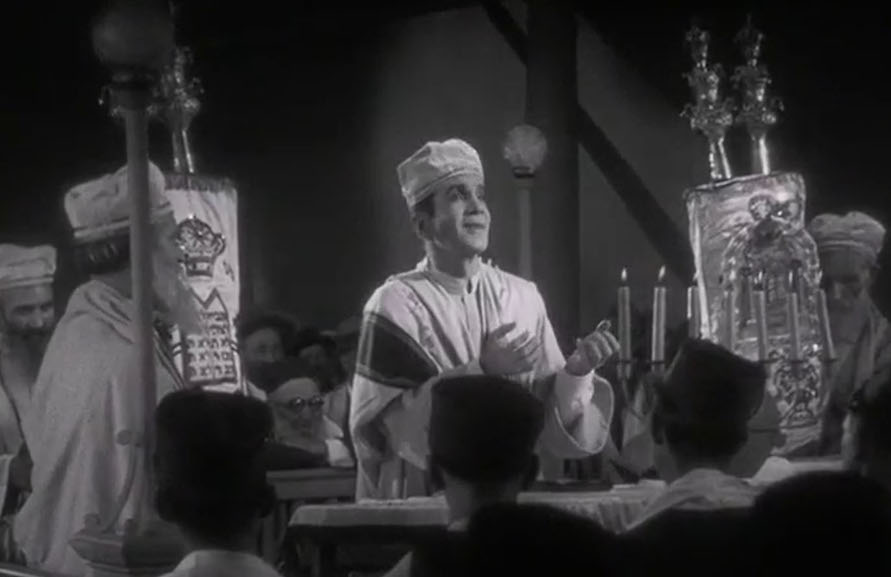
“Seasons pass, the show goes on. Time heals.”
The actors and characters of the movie "The Jazz Singer", directed by Alan Crosland, are, Al Jolson - Jakie Rabinowitz (Jack Robin), Warner Oland - Cantor Rabinowitz, Eugenie Besserer - Sara Rabinowitz, May McAvoy - Mary Dale, Otto Lederer - Moisha Yudelson, Richard Tucker - Harry Lee, Yossele Rosenblatt – self, Bobby Gordon - Jakie Rabinowitz (13 years old). The producer of the film is Darryl F. Zanuck and the screenwriter is Alfred A. Cohn. The movie is 89 minutes.
Published in Şalom Magazine, on March 2, 2022, in Turkish; https://dergi.salom.com.tr/haber-901-sohret_ulasilamamis_bir_balon.html
Related News









